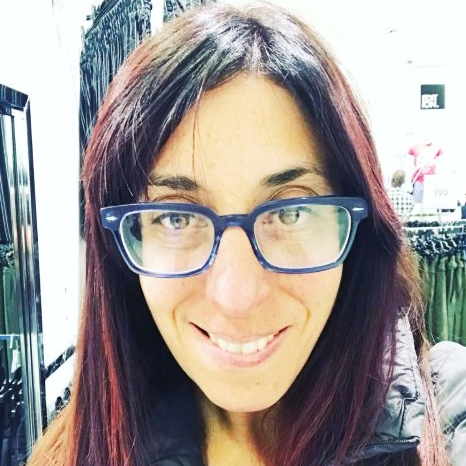
Parshot/Festivals

Esther’s scroll: a Purim Story about Jewish, Jozi women
In the centre of this article is a klaf, a scroll of Esther. This megillah was owned by a woman named Esther Teeger who, unusually for her time, studied Torah every day of her life with her grandfather, the renowned Jewish educator in Cape Town, Reb Moshe Helfand. Helfand was instrumental in starting the Hebrew High School, the first Jewish day school in Cape Town, sowing the seeds for the Jewish day school system in South Africa.
In early 2011, Esther’s great granddaughter, Rachel, was preparing for her Batmitzvah by learning to chant from Megillat Esther. Out of the blue, Esther said, “We have a Megillah in our family.” Her daughters and granddaughters were directed to the back of a high shelf in a cupboard. They pulled out the most beautiful Megillah that had been given to Esther by her mother-in-law Annie Teeger (nee Bloch) whose family had brought it with them when they came from Lithuania. The family couldn’t believe they had discovered an heirloom of such religious significance. Rachel used this Megillah for her Batmitzvah and thereafter, the Megillah was loaned to women in Johannesburg to lein the Megillah every year. What started as the story of one woman has evolved to become a story about Jewish women in Johannesburg and their religious lives and longings.
Women have an obligation equal to men to read the Megillah of Esther. We’re told in the Talmud, Tractate Megillah 4a, “Af hen hayu be’oto hanes”, the women were also part of the miracle (of Purim). This has important halachic implications as it suggests that women can read the Megillah for themselves (and even for men) to fulfil the mitzvah.
Our story begins in 1995, when a group of women in Johannesburg divided up the Megillah and prepared to lein it (in the traditional chant) for Purim. Having grown up in South Africa, where girls aren’t usually taught leining, none of them had ever learnt how to lein. Using a tape recording of the Megillah, each woman prepared for hours, breaking her teeth over the difficulty and newness of the tune. A large number of women gathered for the reading of that particular Purin. They were dressed up for Purim, but they were so nervous, they forgot to bang for Haman! Legend has it that one of the women’s grandfathers returned from shul a little early and stood quietly behind the door listening. Afterwards he told his granddaughter, “You ladies were better than the men.”
Since then, women have been gathering every year in private homes to chant the Megillah. Many have their own chapter that they have mastered and been reading for years. Each woman’s reading is musical, expressive and unique. But we encourage new readers and every year a new woman or two prepares a section and participates. It has also become an opportunity for Batmitzvah girls, such as Rachel, to mark their Batmitzvah by chanting a chapter of the Megillah and learning its meaning. A quiet yet rock-solid gathering, these women take their leining seriously and Purim has become a religious and spiritual highlight of the year for them. It’s fun to bake hamantaschen in anticipation of Purim, but preparing the melodious tune of the Megillah, festive with undertones of the mournful Eicha peeking through, surpasses even one’s favourite mon confection.
The reading of the Megillah by women and for women is mainstream practice overseas in orthodox communities but for years in South Africa it remained an underground experience until five years ago, when the Greenside Shul studied the sources around women leining the Megillah and then held its first women’s Megillah reading, first in a room and, the following year, in the main sanctuary of the shul. The event was a huge success, drawing women from Sandton to Glenhazel. Since then, women’s readings have taken place in Glenhazel. The Greenside Shul women’s reading has become a favourite fixture of the calendar. This year, the Greenside Shul women’s reading will return to our community’s roots and be read from the magnificent Lions Shul in Doornfontein, connecting to our fathers and mothers before us who built this community and to the generation of Teeger and her grandfather, Reb Helfand. We will read from Esther’s scroll there.
A sister Megillah reading has been running in Cape Town since 1992. Spearheaded by Rivkah Lubich at the Kaplan Centre, it was taken over by the South African Union of Jewish Students. Since then, a group of women has been meeting at private houses for this very special rendition of the Megillah. Originally, they used a klaf from the Marais Road Shul and now they borrow a klaf from a private family. Because access to klafim and Torah scrolls for women isn’t an uncomplicated matter in South Africa, it has become deeply significant that in both Johannesburg and Cape Town, private families have always been generous enough to loan their beautiful scrolls to women for what has become a sacred and highly resonant ritual.
It’s heartening that more than one woman’s Megillah reading now takes place under the auspices of orthodox shuls in Johannesburg. It has been 26 years since that original reading took place. Women are more confident of their abilities and understand what they are saying so well that they add tone, inflection and intonation so that the Megillah becomes an engaging, varied, one-hour meditation and piece of religious theatre, connecting us all to the story of the holiday. Where engagement is the buzzword on everyone’s lips, this is the kind of engagement that places women and girls in the centre of their spiritual life and practice, up close and personal with the scroll, with their Torah learning, and with their voices.
The klaf in this picture tells the story of one family, but it also traces the arc of female religious empowerment in Johannesburg. It tells the story of Esther Teeger and links to her great granddaughter’s Batmitzvah and the discovery of the scroll. Enfolded in this Megillah are the stories of many B’notmitzvah, who never dreamed they would have the opportunity to lein on Purim to mark their coming of age. And,this Megillah also reveals a much wider story about Jewish women in Johannesburg who have sought deeper engagement in Jewish religious life and were able to connect through the chanting of Megillat Esther. Empowerment, learning, community and Jewish women’s spirituality have encircled this Megillah for many years. Our story is still being written.










